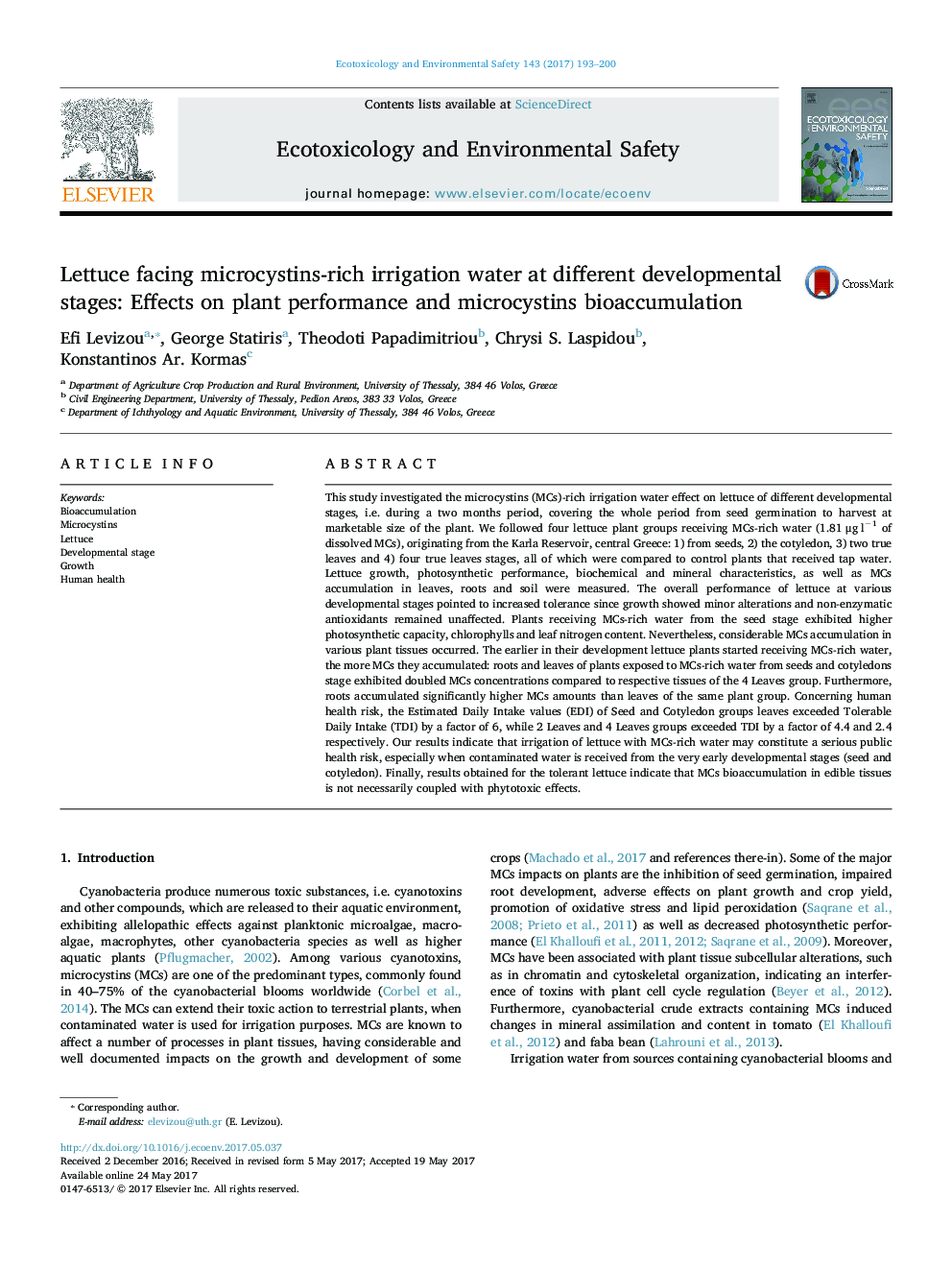| کد مقاله | کد نشریه | سال انتشار | مقاله انگلیسی | نسخه تمام متن |
|---|---|---|---|---|
| 5747582 | 1618921 | 2017 | 8 صفحه PDF | دانلود رایگان |
- The overall performance of lettuce points to increased tolerance to microcystin (MCs) -rich water.
- MCs bioaccumulation in roots and leaves follows developmental stage-dependent profile.
- MCs bioaccumulation is not necessarily coupled with phytotoxicity.
- Irrigation of lettuce with MCs-rich water constitutes a potential but considerable health risk.
- Risk is increased when MCs-rich water is received from the very early developmental stages.
This study investigated the microcystins (MCs)-rich irrigation water effect on lettuce of different developmental stages, i.e. during a two months period, covering the whole period from seed germination to harvest at marketable size of the plant. We followed four lettuce plant groups receiving MCs-rich water (1.81 μg lâ1 of dissolved MCs), originating from the Karla Reservoir, central Greece: 1) from seeds, 2) the cotyledon, 3) two true leaves and 4) four true leaves stages, all of which were compared to control plants that received tap water. Lettuce growth, photosynthetic performance, biochemical and mineral characteristics, as well as MCs accumulation in leaves, roots and soil were measured. The overall performance of lettuce at various developmental stages pointed to increased tolerance since growth showed minor alterations and non-enzymatic antioxidants remained unaffected. Plants receiving MCs-rich water from the seed stage exhibited higher photosynthetic capacity, chlorophylls and leaf nitrogen content. Nevertheless, considerable MCs accumulation in various plant tissues occurred. The earlier in their development lettuce plants started receiving MCs-rich water, the more MCs they accumulated: roots and leaves of plants exposed to MCs-rich water from seeds and cotyledons stage exhibited doubled MCs concentrations compared to respective tissues of the 4 Leaves group. Furthermore, roots accumulated significantly higher MCs amounts than leaves of the same plant group. Concerning human health risk, the Estimated Daily Intake values (EDI) of Seed and Cotyledon groups leaves exceeded Tolerable Daily Intake (TDI) by a factor of 6, while 2 Leaves and 4 Leaves groups exceeded TDI by a factor of 4.4 and 2.4 respectively. Our results indicate that irrigation of lettuce with MCs-rich water may constitute a serious public health risk, especially when contaminated water is received from the very early developmental stages (seed and cotyledon). Finally, results obtained for the tolerant lettuce indicate that MCs bioaccumulation in edible tissues is not necessarily coupled with phytotoxic effects.
242
Journal: Ecotoxicology and Environmental Safety - Volume 143, September 2017, Pages 193-200
